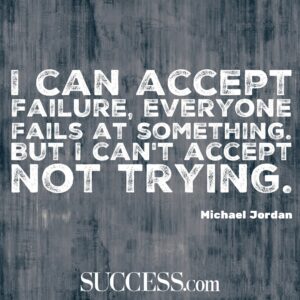
This is part 2 of a blog exploring my “living the life you want” panel discussion at the annual Young People’s stream of the Muscular Dystrophy UK conference. I spoke alongside Lucy Watts and Fi Anderson, and discussed two issues at the conference, one was about managing PAs to maximise my ability to live the life I want, and the other was about the freedom to fail. You can read part 1 here.
Living the life I want means living my best life – but also living my worst. It means being able to do incredible things, but it also means the freedom to make mistakes.
If you’ve grown up disabled, you may have had very protective parents, teachers etc, who have supported you to ensure that you always made the best decision, that the effects of your mistakes were mitigated, and that you never had to feel failure. This is a common response of the people surrounding an ill or disabled child because they don’t want to see a disabled child hurt or upset – but never knowing failure as a child means not knowing how to handle it as an adult.
I hate being wrong, I really hate having to admit I was wrong – because I never learned that actually it’s okay to be wrong, it’s okay to make mistakes, and it’s okay to fail.
Having PAs makes this ten times worse. I would always rather give up control than risk being wrong, and thus if a PA suggests I do something I do it. I would rather risk them being wrong than risk being wrong myself. This makes me very vulnererable, because I don’t have the courage to challenge them, so I’m very open to their manipulation. If a PA wants to make me choose a particular bus route thinking it’s faster, I might disagree once but I’ll always pick their route, because it would feel so shameful to pick a dfferent one and then be wrong. The thing is, it’s a PA’s job, but it’s my life, and I should have the right to go on whichever bus route I choose, without reference to a PA and without worrying about how I would feel if I was wrong.
Learning to have the courage to be clear about what I want, and to make my decisions has been really difficult. I moved from being guided in life by my parents to being guided by PAs without much independence to establish doing things my way. Being able to live the life I want means having the emotional resilience necessary to be able to cope with failure. It means being able to take on big projects accepting that they might not work out, and that’s okay. It means learning to assert myself and confront PAs when I feel like they’re limiting my freedom to fail.
Moving from childhood to adulthood has a number of social rituals, many of which involve going out and drinking, dating unsuitable people, maybe trying drugs – and when you’re reliant on your family support, and are maybe really ill, these things are a lot harder to do. This can leave you feeling trapped in a netherland – neither child nor adult. Disabled children are often prevented from making these “mistakes” – but it isn’t always a mistake, and the opportunity to try these things should be extended to young adults as well. It’s important that disabled young people are given the opportunities associated with these social rituals – and that the support is put in place for doing that.
The freedom to fail is, I think, as importance as the freedom to succeed. The freedom to try things and learn what works for you. The freedom to take opportunities and then discard them. The freedom to take risks, and the courage to accept the consequences, These freedoms are how we grow as people, and it’s important that disabled children aren’t cut out of the opportunity to grow and learn like this. Through this, we become adults capable of making our own happiness. I’m learning that responsibility for making my decisions lies with me. That I can be proud of my successes and work.